If your cat is peeing on your bed, you are likely beyond frustrated as cat urine can ruin your bed. Let’s take a look at the reasons why your cat pee on your bed and what you can do about it.
Why is My Cat Peeing on My Bed?
There are several possible reasons your cat is peeing on your bed. Let’s have a look at them:
1. Medical reason
It’s important to begin by ruling out medical reasons before you try to address other problems. A cat with a urinary tract infection can frequently pass small amounts of urine. Certain diseases like diabetes and kidney disease can also cause cat pee on bed.
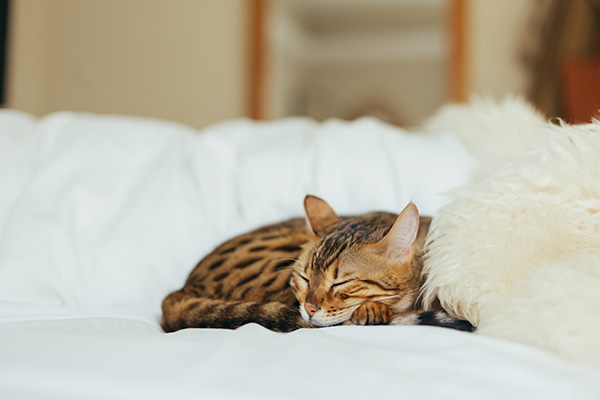
2. Maybe your cat doesn’t like the litter box’s location
Cats often develop preferences for where they like to do their private business and may avoid locations they don’t like. This means your cat might avoid the litter box if it’s in a location she dislikes.
3. Dirty litter box
A litter box is a vital part of your cat’s life. Be sure to clean it regularly. If the litter box is dirty or smelly, your cat may decide to go elsewhere and keep peeing on the bed. A clean litter box improves your cat’s quality of life and helps decrease the risk of cat peeing on bed.
4. Your cat feels stressed and anxiety
Anxiety urination is common in younger cats. They tend to dribble some urine when they are overly stressed or anxious.
Some things that can trigger a cat’s anxiety are loud noises, new people in the home, or a person leaving the cat’s home. Underlying medical conditions also cause anxiety and stress to your cat. Rule out health crises first, then try to reduce your cat’s stress as much as possible.
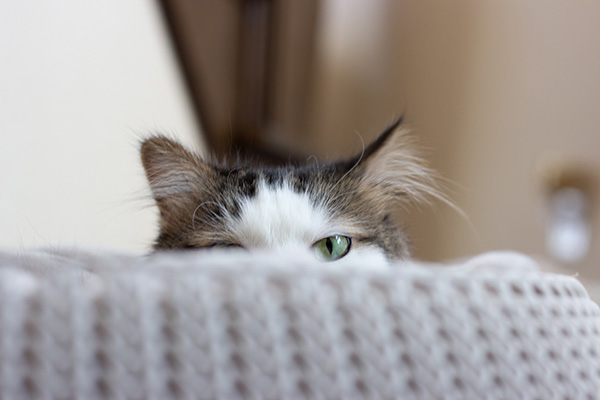
5. It wants a new litter box
Your cat might be peeing on bed because she wants a new litter box. Some felines like to use one litter box to pee and another one to poop. If you have a multi-pet household, some cats dislike sharing their litter box. Cats with certain physical limitations may have a difficult time using specific types of litter boxes, like top-entry or litter boxes with high sides.
6. Change in routine or household
Cats are creatures of habit. They need predictability and structure in their routine and household to feel safe and secure. If their routine suddenly changes, this can result in inappropriate behavior. Changes to your cat’s routine and environment may cause them to pee on your bed.
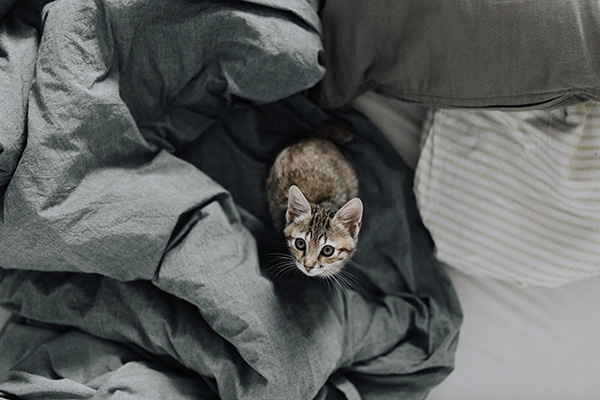
How to Stop My Cat from Peeing on Bed
Wondering how to stop your cat from peeing on bed? Let’s take a look at some steps to stop cat from peeing on bed.
1. See your vet
Medications can provide some additional help in treating inappropriate peeing on bed when the behavior is in response to stress or anxiety. Always consult with your vet before giving your kitty any type of medication for a behavior problem.
2. Find out the reasons that may cause your cat’s anxiety
Cats can be stressed or become anxious by events that pet parents may not think of as traumatic. They can experience anxiety if they anticipate danger, and then translate it into fear. Cat anxiety can be caused by pain or ailment, or some infectious diseases that affect the nervous system. Joint pain in senior cats can also be a source of anxiety, such as failing to use the litter box or peeing on bed.
Cats may become anxious and stressed when they’ve left home alone. Other causes of cat anxiety might include changes in the environment, new furniture, a new baby or a pet in the home or even a change of location.
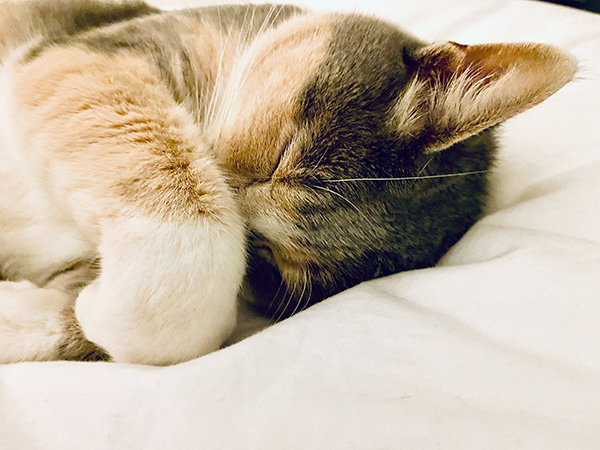
3. Keep the litter box clean
All cats prefer and like using clean litter boxes. So, scoop and clean your cat’s litter box at least once a day. Once a week, clean the litter box with warm water and completely replace the litter.
4. Make the litter box’s zone attractive
Try playing with your kitty near the litter box. Also leave her favorite toys and treats for her to find and enjoy in the litter box zone. Don’t put your cat’s food or water bowl next to the litter box. This is because cats generally don’t prefer eliminating close to their food.
5. Place the litter box in an ideal spot
Your cat may be peeing on bed because she can’t easily get to her litter box at all times. Place your cat’s litter boxes in an ideal, accessible spot, away from high-traffic areas. It should be away from areas where the cat may feel trapped.
If you live in a multistory house, you may need to provide your cat a litter box on each level. Keep litter boxes away from busy or loud places.
6. Try out new litter boxes
If you think your feline companion may dislike her litter type, texture or scent, try offering her different litter types to use. Be sure to have a litter box for each cat in your home, as well as one extra.
7. Make your bed unattractive
Your bed is cozy, appealing, soft, absorbent, and smells like you. Naturally, your cat wants to spend a lot of time there. Make your bed less appealing for your cat.
If your cat has peed on your bed, it’s important to prevent her access to it. This is especially important when you aren’t home or are too busy to supervise her. Just close your bedroom door.
Pet parent tip: Avoid scolding your cat for peeing on your bed. If you punish or yell at your kitty, behavior change is less likely to work out. They will feel embarrassed and keep peeing on your bed.
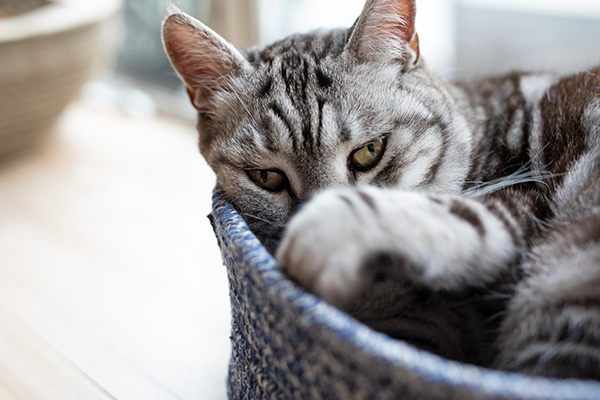
Final thoughts
The first step in resolving cat peeing on bed is to rule out medical problems by checking in with your vet. While your cat peeing on bed is definitely a disturbing situation, with just a little patience and the above tips, you’ll soon have a dry bed and a healthy, happy cat!
source: https://wopet.com/cats/why-is-my-cat-peeing-on-my-bed-and-how-to-fix/

Kenneth Kane at March 02, 2025 at 9:23am MST
Your cat might be peeing on your bed due to stress, medical issues, or a litter box problem. Try keeping the litter box clean, reducing stress, and visiting a vet if needed! I have an important exam coming up, and I’m trying to figure out the best way to prepare. I have my notes, textbooks, and lecture slides, but sometimes, they don’t seem enough. I need something that gives me a clearer idea of what kind of questions might appear in the exam.
That’s when I heard about test banks. Some of my classmates say they are really helpful because they contain actual past exam questions and practice problems. But I’m not sure—are they really useful, or is it better to rely only on textbooks and notes? Do they actually help in understanding the concepts, or do they just make students memorize answers?
If anyone here has used test banks before, please share your experience. Did they help you improve your scores? Are they a good study tool, or should I stick to my regular notes? Any advice would be really appreciated!